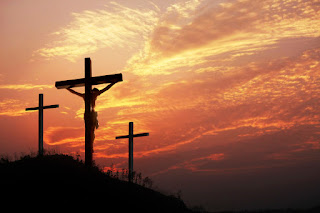I’m an
early riser. Most mornings I’m up before
the sun. It’s my favorite time of the
day. It’s when I say prayers and read
scriptures and meditate and anticipate the sunrise. Before anyone else has even considered getting
out of bed, I’m watching the darkness surrender to the dawn.
One
morning I was sitting in the sun room with the lights out. As the room began to be illuminated by the
dawning day, I noticed something in the corner I hadn’t seen before. In the twilight it looked just like a fishing
rod tube. (For those not familiar with that
description, a fishing rod tube is the cylinder-shaped case used to store a
fishing rod.) The more I looked at it,
the more certain I was that Cindy, my wife, had bought a new fishing rod and
left it in the sun room to surprise me. I
became convinced that I was, without doubt, looking at a new fishing rod stored
in a new fishing rod tube.
Finally,
I turned on the lamp so I could see my new treasure, only to discover that what
I thought was a fishing rod tube was actually a curtain rod. What I thought was a present from my wife was
actually a project for my wife. She
wanted me to hang a new curtain rod.
That
morning I had an epiphany of sorts. When
the light came on, I saw the object clearly for what it really was.
Right
now, the Church is observing the season of Epiphany. From the end of the Christmas celebration to
the beginning of Lent we celebrate the manifestation of Jesus Christ as God in
the flesh. It is normally associated
with the visit of the Magi to see the Christ child or with the baptism of Jesus
and his anointing as the beloved Son of God.
Near
the Jordan River, John the Baptist saw Jesus coming and said, “Behold, the Lamb
of God, who takes away the sin of the world!”
In the Gospel of John, the first chapter, he said it twice. “Behold the Lamb of God, who takes away the
sin of the world!” He also twice
repeated this phrase; “I myself did not know him…”
Wouldn’t
you expect him to say the opposite? It seems
to me he should say something like, “I know him! He’s the Lamb of God!”
What if
John, there by the Jordan, had and epiphany?
What if he saw Jesus…I mean really saw him? What if the Jesus he thought he saw in the twilight
of a new age was completely different from the Jesus he saw in the full light
of day?
John
had envisioned a Messiah who would be a grim reaper. One who would come with his winnowing fork in
his hand, who would clear the threshing floor, gather the wheat and burn up the
chaff with unquenchable fire. (Matthew 3:12)
But now
he sees Jesus, the Lamb…the Lamb of God that takes away the sin of the
world. He sees Jesus, the one who, through
self-sacrifice, would heal our broken world.
He would take away the sin of the world not by burning up the sinners
but by suffering for them; not by coming in like a Lion but like a Lamb, the
Lamb of God.
So, I’m
thinking that this year our world needs an epiphany. We need a new vision of Jesus. Coming out of the darkness of 2016, the
darkness that caused us to see a distorted image of Jesus, the darkness in
which we thought Jesus was a warrior God who wanted to help us kill our enemies
or defeat our political opponents, the darkness that left us groping around in
fear, looking for a Messiah who would make us great again, a king who would sit
on his thrown and pronounce judgement on all those people, all those people who are not like us, who are other than us, who are out to get us;
the Muslims, the immigrants, the blacks, the whites, the Hispanics.
Like
John, in our darkness we saw the Jesus we wanted to see. But, like John, we can step into the light
and see Jesus as he really is. He is the
Lamb of God who takes away the sin of the world, who forgives his enemies, who
blesses those who persecute him, who loves the unlovable and dies for the despicable.
In
2017, what if we, like John the Baptist, have an epiphany? What if we shook off the darkness, stepped
into the light and saw the real Jesus, the Lamb of God who takes away the sin
of the world? What if we decided to
follow this Jesus into the light of a new day, to actually take his teachings
seriously, reject fear, embrace enemy love, refuse to be manipulated by the
darkness that wants to dominate this broken world?
An
Epiphany prayer for 2017:
Most loving Father, whose will it is for us to give
thanks for all things, to fear nothing but the loss of you, and to cast all our
care on you who care for us: Preserve us from faithless fears and worldly
anxieties, that no clouds of this mortal life may hide from us the light of
that love which is immortal, and which you have manifested to us in your Son
Jesus Christ our Lord; who lives and reigns with you, in the unity of the Holy
Spirit, one God, now and forever. Amen (form
the The Book of Common Prayer)








